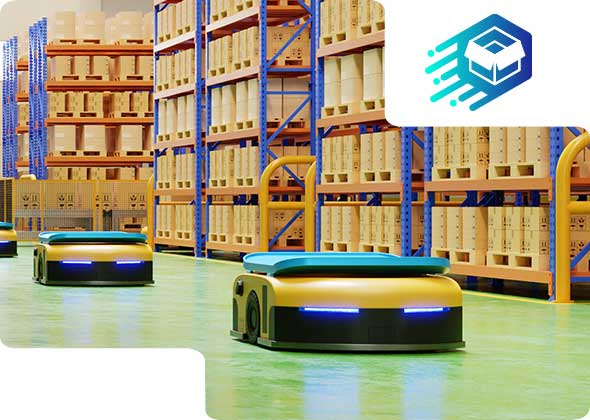
The First AI Powered Enterprise QMS Suite
 Powered by AI
Powered by AI
USE EQMS.AI TO DRIVE AUTOMATION, GROWTH AND INNOVATION, REDUCE RISK, IMPROVE PRODUCT QUALITY, REDUCE COST, AND INCREASE REVENUE
Transform your business with the power of an AI-enhanced Enterprise Quality Management System (EQMS).
Our EQMS integrates quality data from both internal and supplier sources, utilizing advanced technologies to optimize your processes. Key features of Omnex EQMS include:
O-BOTs
with
Machine Learning
and Deep Learning:
- Enhance Quality Product Development, Supply Base, and E-mobility.
- Predict outcomes, recommend actions, and validate processes.
Comprehensive
Support :
- Guide audit processes and provide feedback on non-conformances.
- Assist in completing FMEAs (Failure Mode and Effects Analyses).
- Perform expert reviews of PPAP (Production Part Approval Process) submissions.
Supplier and
Requirements
Management :
- Evaluate supplier 8Ds (Eight Disciplines of Problem Solving).
- Extract and manage requirements from thousands of customer documents.
Advanced
Predictive
Capabilities :
- Predict failure trends based on historical data.
- Analyze documents for adequacy and consistency.

QHSE.AI
Quality, Environmental, Health & Safety, Social Responsibility & IT Security
The QHSE suite enables the organizations to satisfy all the requirements of QMS, from ISO 9001 to AS 9100 and IATF 16949. It seamlessly supports and integrates with ISO 14001, ISO 45001, and other management system standards. Now, with intelligence from the O-BOT, AI will plan, schedule audits, and write nonconformances. AI uses Text Classification, Summarization, and Document Analysis to ensure the quality of issue reporting, problem evaluation, and 8D problem-solving. Control the quality of the auditor's nonconformances or problem-solving using Omnex’s O-BOT. Let the power of AI work for you in making timely decisions and actions.
Read moreNPI.AI
New Product Introduction
The NPI suite provides the functionality of the recently updated APQP and Control Plans. Use the NPI suite to digitalize your APQP, including all audit checklists. AI helps spot problems in your DFMEA, PFMEA, Test Plans, Control Plans, or Process Flows. O-BOT also provides intelligent recommendations on failures and ratings in the FMEA development. It can evaluate both your PPAP and your supplier's PPAP in minutes—a multi-day job done in a jiffy. Hundreds of configurable business rules power O-BOT to fit your needs,
offering tremendous ROI.


eMOBILITY.AI
Manage Requirements, Functional Safety and Product Cybersecurity
Extract customer requirements from thousands of customers using AI, and ensure that stakeholder requirements are satisfied with the functional requirements. Create a functional safety plan with all digital documents. Develop AI-based rules for all digital documents, from HARA to Safety Case, including Product Cybersecurity and ASPICE. See our ASPICE O-BOT at work, where it instantaneously provides a Level 1 rating for ASPICE processes, from System Requirements to Change Request Management. Integrate third-party tools like MS SharePoint, Polarion, and JIRA with the eMobility suite.
Read moreSUPPLIER QUALITY.AI
Efficiently Manage Your Supply Chain
Manage your entire supply chain, from supplier onboarding to managing supplier product launches, including supplier audits and problem-solving. AI will plan, schedule, and help write nonconformances, and predict failures. It will ensure the quality of issue reporting, problem evaluation, and 8D problem-solving. Control the quality of the auditor's nonconformances or problem-solving using Omnex’s O-BOT. The O-BOT will also be used to evaluate all 19 PPAP submission documents—a multi-day effort done in a jiffy. Hundreds of configurable business rules power O-BOT to fit your business needs. Let us customize the AI suite for your product launch. The ROI is tremendous.
Read more

Why AI ?
Artificial Intelligence (AI) has existed since the 1950s and is now an integral part of our daily lives. It has become ubiquitous, from sorting emails to recommending movies, and through virtual assistants like Siri and Google. The rise of transformer models, such as OpenAI’s ChatGPT, has made AI a household name, driving its adoption in various sectors, including quality management. Cloud technology, cost reductions in hardware and computing, sophisticated Natural Language Processing (NLP), Deep Learning, large language model algorithms, and access to data have made
AI advancements possible.
Drivers of Artificial Intelligence
Disruptive Changes in Automotive Industries
Demanding compliance & regulatory requirements in many industries
Evolving and proliferation of newer Standards
Emergence of the millennial workforce - tech-savvy, mobile-centric, socially networked employees
Virtual Teams
Digitalization of Quality - Framework

Al is the game changer in Quality.
Strategic Advantages of Artificial Intelligence
Accelerate Time to Market
Gain insights with your data
Improved Risk Management
Cost Reduction - Cost of rework, Failure, Launches
Improve Product Quality
Increase Team Efficiency
Knowledge Management
Increase Revenue
Drive Supply Chain Excellence
Answers to AI FAQs
- Assessment: Evaluating current systems and processes to identify areas where EQMS.AI can add value.
- Planning: Defining goals, timelines, and resource requirements.
- Configuration: Configuring, Customizing and integrating AI tools and algorithms. Training the model with your data.
- Testing: Running pilot tests to ensure the system works at accepted levels of accuracy with Omnex Subject Matter Experts (SMEs)
- Deployment: Rolling out the AI-powered system organization-wide.
- Training: Providing training and support to users.
- Monitor: Continuously monitoring and refining the AI Models.





